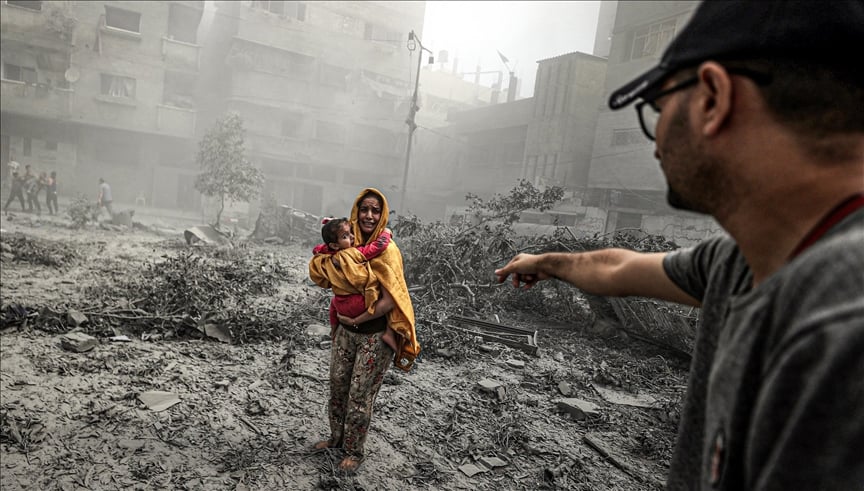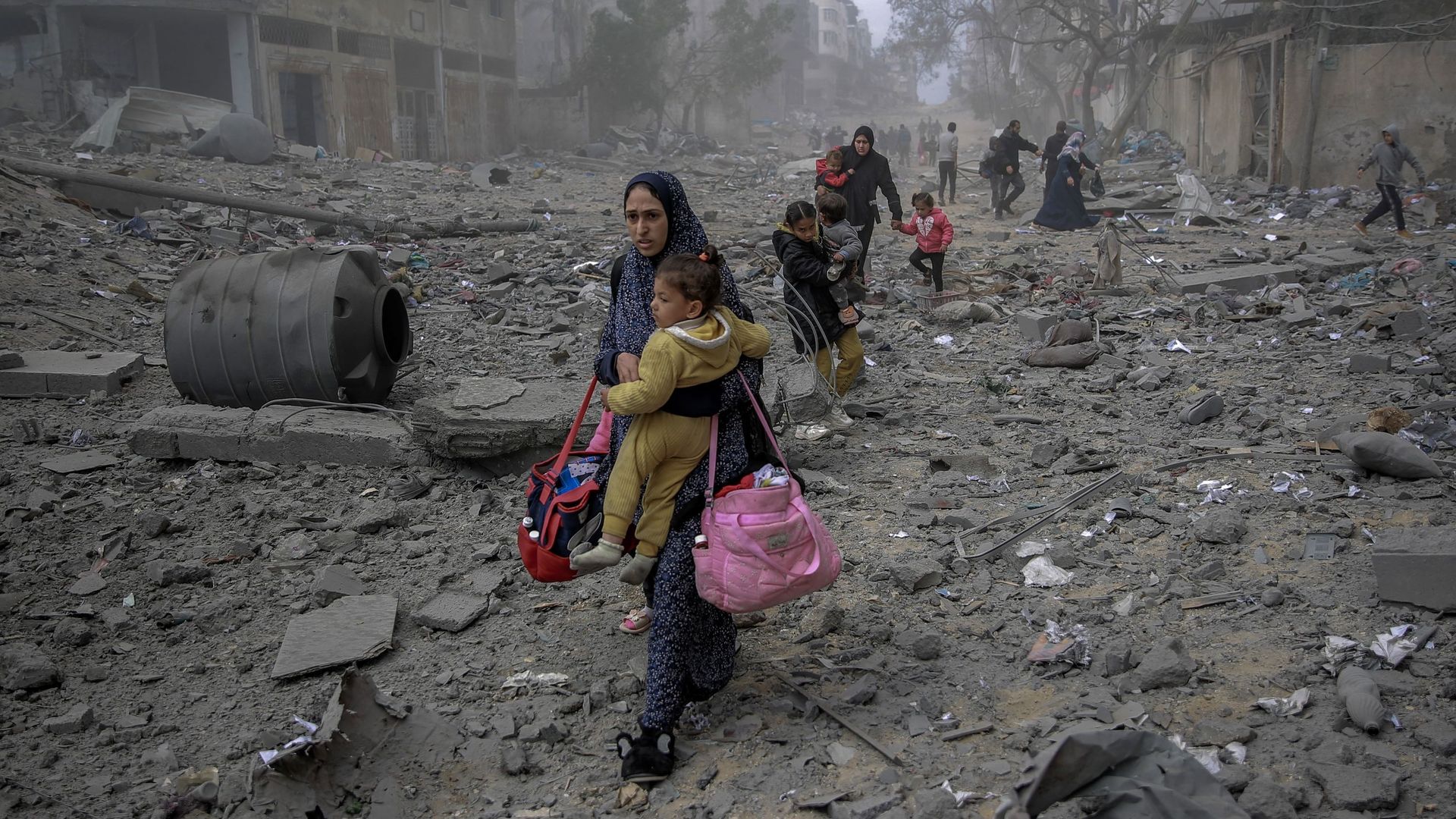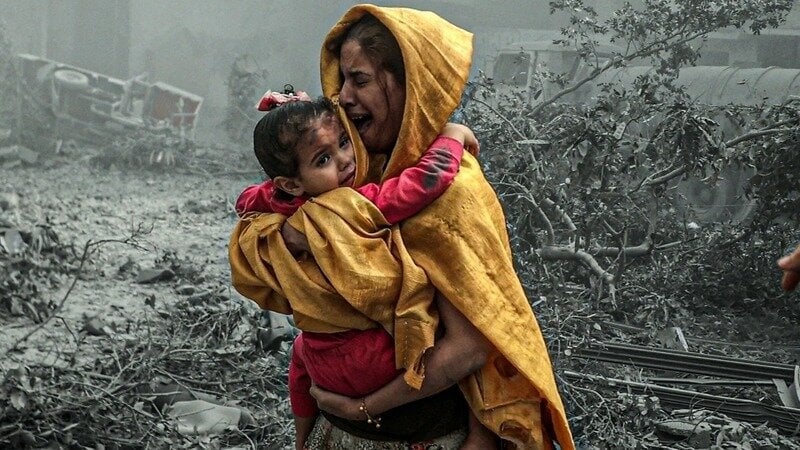I usually try to keep posts concise. But I thought once a month I can splurge on my word count and try talk about something in a bit more detail. Here goeth my first attempt. A few days ago Takis Konstantopoulos wrote a reaction to my 2008 post about the Holodomor (Stalin’s planned famine in the Ukraine). He raised some good questions about the nature of genocide denialism that I’d like to address by comparing the Holocaust to other genocides.
I went to a Jewish school so we probably learned a bit more about the Holocaust than most schoolkids. A common perspective we were exposed to was that the Holocaust was unique in terms of the extent of the atrocities. I strongly disagree that it’s special in this sense. It’s hard to compare cases of extreme suffering. Can we really say whether the ripping apart of babies (from the Holocaust) is better/worse than, say, requiring people to show no emotions when their family is slaughtered (under pain of death) or making children bite another child to death? Such a comparison is demeaning, too. It can even lead to an ugly competitiveness: “my genocide’s worse than your genocide!”.
But there are 2 areas where I think the Holocaust is unique. They form a [seemingly] puzzling combination. (1) There is probably more evidence of the Holocaust’s details than for any other genocide in history. (2) There is probably more third party denial [see below] of the Holocaust than for any genocide.

Degrees of Evidence for Genocides
Most genocides are pretty scarce on even on “basics” such as body counts. This year, we saw the killing of about 9200 Tamil civilians in Sri Lanka by the government’s military campaign to destroy the Tamil Tigers. Or was it 20,000? We’ll never know. The best photo evidence is a set of poor quality satellite images that show a rubble of bombed tents in a civilian camp. Similarly, the largest post-WW2 conflict is the Congo War — an effective genocide which can be considered an extension of the Rwandan genocide. The death toll is about 5.4 million, with a huge margin of uncertainty. But the Nazis did not hide anything. They deliberately accounted for as many victims as they could. They went out of their way to photograph as much as possible so that we have archives with 85,000 photos of how it really was on the ground.
Also, for most genocides there is no clear evidence of intent. To what extent were the deaths in the Holodomor planned by Stalin and to what extent was it a result of the poor crop yields and famines that the USSR experienced at the time? This really is an open question. As are most death tolls from most genocides. Unsurprising since a lot of genocides are constructed bottom-up, by the civilian masses themselves. For instance as far as I know the Rwandan genocide wasn’t the direct result of a clear chain of command. Again, not so for the Nazis, who provided the clearest possible evidence of intent all the way up their complicity chain. We have documents all the way from the [public] proceedings of the Wannsee Conference, executive orders, testimonies from trials etc.
Denialism of Genocide
In terms of denialism, there is more of a continuum. There are people who deny every form of mass murder. Some US communists today deny that Mao did anything wrong. Chomsky essentially wanted to give the Khmer Rouge a pass. Russian nationalists deny the Holodomor. Leftist intellectuals from the west denied that there was anything wrong with Stalin’s show trials. But I don’t think for there’s the same level of third party denialism for any other genocide.
By third party denial I mean denial by private individuals external to the genocide itself. I think the two most organised cases of mass murder denial are the Turkish government’s denial of the Armenian genocide (even trying to edit an Encarta article) and the Chinese government’s denial of the mass murder instituted by Mao (by censorship and downplaying). But both are cases of denialism by the political descendants of the system responsible for the original crimes. Holocaust denial is a different beast altogether: a popular movement scattered across the world with no continuity-ties to the Nazi party. (Even neo-Nazi groups are recreations — not attempts by an ongoing regime to maintain its legitimacy.)
What Does This Show?
The question of why Holocaust denialism has this special role is probably a complex intersection of racism, politics, economics, religion etc etc. This is a quagmire. But I think the existence of this special role as something unique about the Holocaust (regardless of how it’s come about) has something more plain to tell us.
The denialists of most genocides use similar tactics. Ones which take advantage of the gaps in evidence mentioned above. To take the Holodomor as the example, they claim: (1) That the death toll has been greatly exaggerated (partly true since ridiculous numbers as high as 20 million have been given in political speeches). (2) That the extent to which the deaths were deliberate is questionable (again partly true since there is some legitimate historical debate). Of course all this shows is that we don’t have enough documentation to answer these important questions. We still have enough to know that it happened.

However all of this disappears in the case of Holocaust denial. Because it’s so well documented, there are no evidential gaps for the denialists to latch on to — so they make the gaps up. For other genocides the, racism, nationalistic pride, desire to disparage the victims, all have a better hiding place behind genuine gaps in the historical record. With Holocaust denial, the gaps are removed — and the motives become crystal clear.
The comedian Denis Leary made a good joke on a late night TV appearance. He did an impression of someone anti-Irish saying: “there was no potato famine!” Because the potato famine is such an established fact, it becomes obvious the statement is simply malicious. So too with Holocaust denial, on the existence of which the joke rests.
This is why it’s important to have an awareness of Holocaust history. Not as a mere case study but as a template for genocide dynamics. Not because it was somehow “more” atrocious, but so that we are better equipped to spot the ugliness behind all the other genocide denialism. So we can appropriately say “fuck off” to the Anatoly Wassermans, the Sunsara Taylors, the Noam Chomskys — in the same way we can to the Irvings and Ahmadinejads.





0 Comments